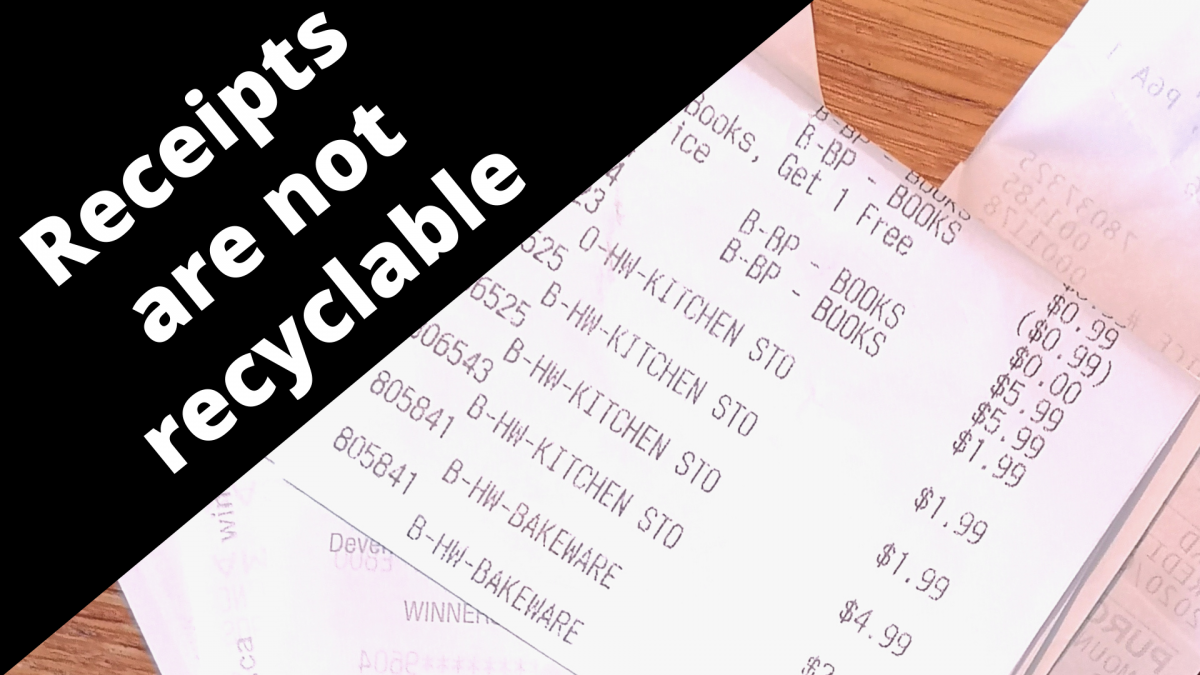
Store-printed receipts should not go into your paper recycling bin or composter. Whenever possible, ask for an e-receipt or no receipt.
Most stores and restaurants print receipts on special coated paper that contains chemicals such as bisphenol A (BPA), which is suspected to be hazardous to both people and ecosystems. Because many receipts end up in recycling bins, BPA is showing up in recycled paper products.
The Government of Canada declared BPA to be toxic in 2010. This endocrine disruptor is suspected to be a factor in a range of health conditions with special concern for babies’ and children’s health.
Consumers should be aware that many manufacturers that produce “BPA-free” products and retailers that claim to have stopped issuing BPA-coated receipts have simply replaced BPA with a similarly acting chemical such as BPS.
Want to know more?
- Mandatory receipts as a source of environmental and health hazards
- The toxic receipt: How BPA creeps into our bodies from thermal paper
- Canadian grocers urged to ban receipts containing cancer-linked chemicals
We encourage you to contact your favourite retailers and ask them to stop using paper coated with bisphenols to print receipts or to issue e-receipts instead.




